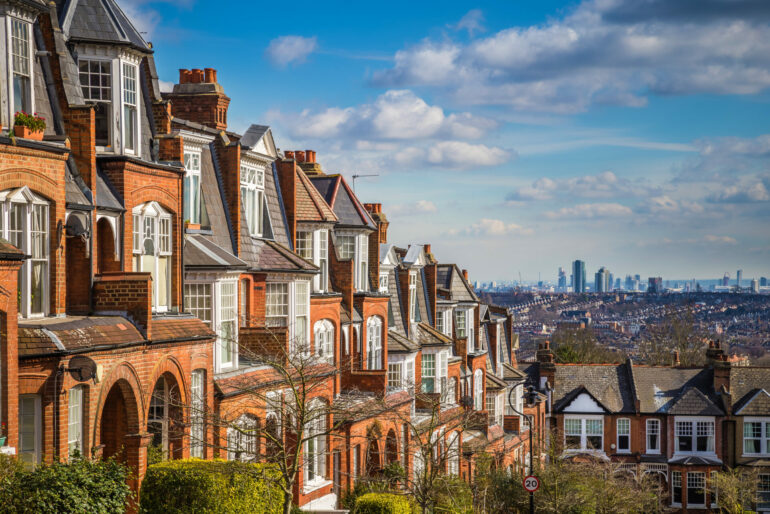Homeowners in London with £1m mortgages could see their payments rise, by 38% on average over the next six months, new data from mortgage insight platform Dashly has revealed.
Based on a sample of 250 fixed rate mortgages in the capital between £750,000 and £2.5m that are due to end between now and the end of February, and assuming borrowers switch to the best available rate instead of lapsing onto their standard variable rate, the average monthly payment will rise by £1572 a month, from £4137 to £5709 — or £18,864 a year, an increase of 38%.
Dashly’s analysis also found that the average interest rate will rise from 1.66% to 5.16%.
Ross Boyd, Dashly CEO, said: “Payments are going up for everyone, but for people with sizeable mortgages, the increase will be particularly steep.
“Even wealthy London homeowners will feel an increase of over £1500 a month and some may have no choice but to downsize.
“Expensive properties in the capital were manageable during the era of record low rates, but that era is now over and we may soon start to see the fallout.”
In light of these findings, newswire Newspage sought the views of property experts, asking how, if at all, this increase will affect levels of homeownership in the capital.
Neezam Romjon, co-founder of Rebus Financial Services, said that more people could potentially leave the capital or consider taking in lodgers to stay above water.
He said: “I think we are about to see another wave of London homeowners looking to relocate to other regions of the UK.
“I also suspect we’ll also see more people with £1m plus loans in London looking for lodgers to provide them with another income stream simply to afford the increase in mortgage payments.”
Meanwhile, Riz Malik, director of independent mortgage broker, R3 Mortgages, said more Londoners with sizeable mortgages are switching to interest-only to cushion the blow.
“In the capital, we’re noticing an increase in requests to convert all or part of the mortgage to interest-only, particularly for larger loans, as desperate homeowners seek to reduce their monthly payments,” he said.
“However, serious challenges emerge when those already on interest-only plans struggle with their payments.”
Malik’s views were shared by Amit Patel, adviser at Trinity Finance: “For those London borrowers who will see their monthly repayments skyrocket by hundreds of pounds, a good option could be to switch to an interest-only mortgage to ride out the storm.
“However, this repayment type will not be suitable for everyone and will depend on an individual’s circumstances so it’s crucial to speak to an independent mortgage adviser to explore all the options.”
Craig Fish, managing director at Lodestone, said higher net worths are often able to weather financial storms, although landlords with large mortgages may prove the exception.
He added: “Those with £1m plus mortgages in the capital do tend to have a fair amount of financial proficiency, alongside their sizeable incomes.
“These types are more than capable of surviving the storm headed London’s way, so forced sales are unlikely.
“The same can’t be said about the buy-to-let market, and this is where we may see forced sales as landlords unable to achieve enough rent have to exit the market. This is likely to push property values down on average in the capital, and I fear we haven’t seen the worst of it yet.”
Dean Esnard, director at Magni Finance, agreed with Fish: “High earners generally have more options available to them.
“They can normally put down a larger deposit, obtain interest-only loans or take advantage of offset mortgages to help reduce payments.
“High net worth individuals are either paying some of their mortgage down with surplus funds or keeping it and using the cash to invest in different stocks and bonds with a view to getting a higher return than the mortgage cost. We had one client recently who paid off a £5m mortgage completely.”




